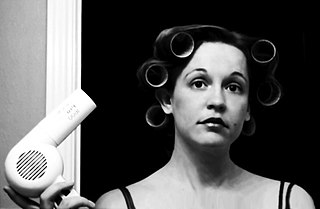A Quote by Alice Weaver Flaherty
What do prisoners do? Write, of course; even if they have to use blood as ink, as the Marquis de Sade did. The reasons they write, the exquisitely frustrating restrictions of their autonomy and the fact that no one listens to their cries, are all the reasons that mentally ill people, and even many normal people write. We write to escape our prisons.
Related Quotes
I could never write about the sort of people John Cheever or John Updike or even Margaret Atwood write about. I don't mean I couldn't write as well as they do, which of course I couldn't; they're great writers, and I'm no writer at all. But I couldn't even write badly about normal, neurotic people. I don't know that world from the inside. That's just not my orientation.
I, myself, write to change my life, to make it come out the way I want it to. But other people write for other reasons: to see more closely what it is they are thinking about, what they may be afraid of. Sometimes writers write to solve a problem, to answer their own question. All these reasons are good reasons. And that is the most important thing I'll ever tell you. Maybe it is the most important thing you'll ever hear. Ever.
I write because I have an innate need to. I write because I can't do normal work. I write because I want to read books like the ones I write. I write because I am angry at everyone. I write because I love sitting in a room all day writing. I write because I can partake of real life only by changing it.
I wanted to write about my disorders for people like my husband or mother who don't suffer but have saved people. Mentally ill people don't have a choice in who they are. But those that stand by the mentally ill make an enormous difference. Even when I'm healthy enough to take care of myself I face constant battles, especially with insurance companies.
Throughout all of the changes that have happened in my life, one of the priorities I've had is to never change the way I write songs and the reasons I write songs. I write songs to help me understand life a little more. I write songs to get past things that cause me pain. And I write songs because sometimes life makes more sense to me when it's being sung in a chorus, and when I can write it in a verse.
It is truly excellent to have someone believe in you and your ability to write. But I think it is just as helpful to have people who don't believe in you, people who mock you, people who doubt you, people who enrage you. Fortunately, there is never a shortage of this type of person in the world ... write for yourself. Write for the story. And write, also, for all of the people who doubt you. Write for all those people who are not brave enough to do this grand and wondrous thing themselves. Let them motivate you.
Any negative review you write, they'll say, "Oh, you're being so mean." I think the problem with a lot of criticism is that too many critics either write just description or they write in a Mandarin jargon that only a handful of people can understand, or they write happy criticis - everything is good that they write about. I think that's really not good. I think it's damaged a lot of our critical voices.
The secret to writing is just to write. Write every day. Never stop writing. Write on every surface you see; write on people on the street. When the cops come to arrest you, write on the cops. Write on the police car. Write on the judge. I'm in jail forever now, and the prison cell walls are completely covered with my writing, and I keep writing on the writing I wrote. That's my method.
If anyone e-mails you something "by George Carlin," there's a 99 percent chance I did not write it. I didn't write "Paradox Of Our Time." I didn't write "George Carlin On Aging." I didn't write a eulogy for my wife after she died. I didn't write the New Orleans thing. I didn't write "I Am A Bad American." None of them. You know what I've decided to do? I'm going to get a little cheap put-it-together-yourself website called NotMe.com.





































